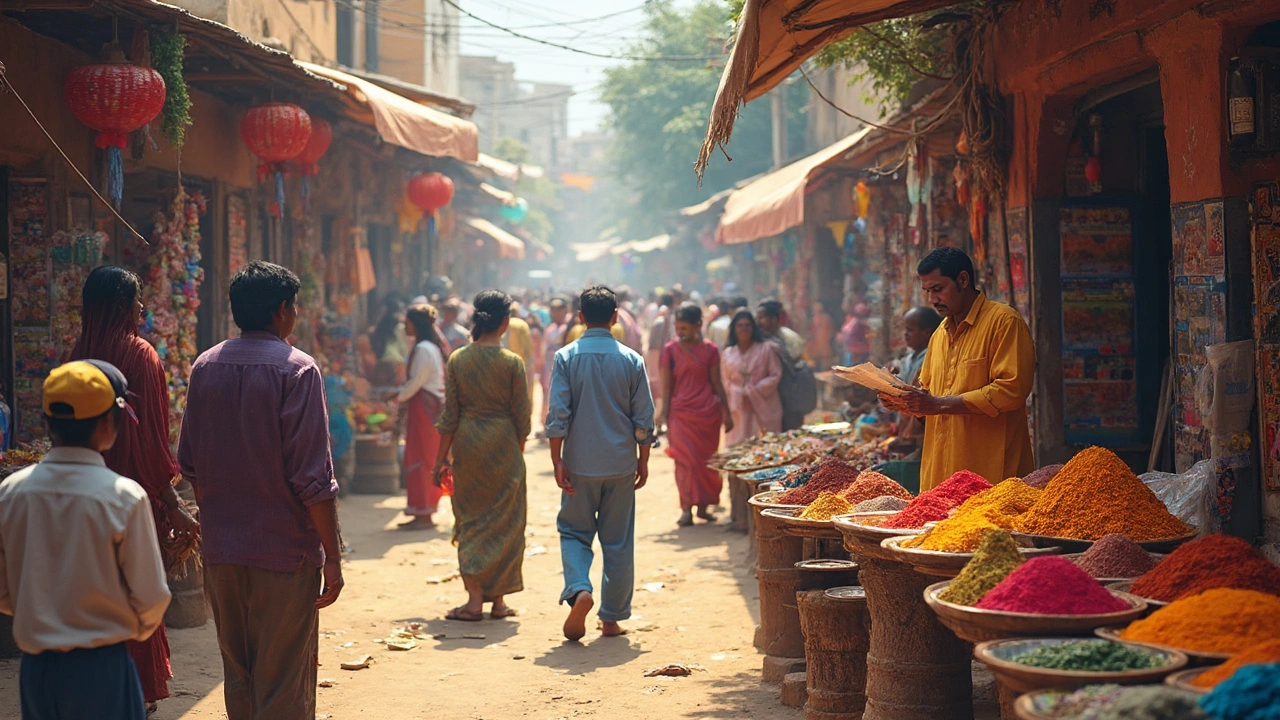Do I Need Malaria Pills for India?

- Mar, 9 2025
- 0 Comments
- Aaron Blackwood
Heading to North India for a bit of adventure or to soak in the rich culture? One thing that might be floating around in your head is whether you'll need malaria pills. It's a valid concern and good on you for thinking ahead!
Malaria is a disease carried by mosquitoes, and while it's less common in some parts of India as it once was, there are still areas where the risk can be significant. Not every corner of North India poses a risk, but it’s smart to be informed before you pack your bags.
Generally, cities like Delhi and Chandigarh see fewer cases thanks to better urban management and public health standards. But for places more off-the-beaten-path, especially during the rainy season, the story might be a bit different. Always check the latest travel advisories and health updates.
- Understanding Malaria in India
- Risk Areas in North India
- Precautionary Measures
- Travel Tips for a Healthy Trip
Understanding Malaria in India
Malaria in India is one of those health concerns that travelers usually ask about. Understanding this disease can help you figure out whether you really need malaria pills for your trip. The good news is that malaria cases have been on a decline thanks to ongoing efforts by health authorities. But the situation can vary depending on where you're headed.
What Causes Malaria?
Malaria is caused by parasites that are transmitted to people through the bites of infected mosquitoes, primarily female Anopheles mosquitoes. It's key to note that not all mosquitoes in India carry the malaria parasite, so the risk isn’t uniform across regions.
High-Risk Areas
Specific regions in North India see more cases of malaria. Areas with dense forests or that are situated near rivers, like some parts of Uttar Pradesh and Bihar, are known to have higher risks. Urban centers like New Delhi are typically safer, but it never hurts to be cautious.
Symptoms to Watch Out For
If you're feeling any symptoms such as fever, chills, or muscle aches while traveling, you should seek medical help immediately. Fortunately, in major cities, medical facilities are well-equipped to handle such cases.
Efforts by India to Control Malaria
India has invested in a National Vector Borne Disease Control Program, which focuses on reducing the incidences of malaria. These efforts have been paying off with improved health infrastructure and increased awareness campaigns.
| Year | Malaria Cases Reported |
|---|---|
| 2021 | 1.6 million |
| 2022 | 1.2 million |
| 2023 | 800,000 |
The table above shows a promising reduction in malaria cases over the past few years. This decline can be attributed to a mix of public health initiatives and better mosquito control.
Risk Areas in North India
So, you're eyeing the stunning landscapes and bustling cities of North India, but wondering where the mosquito risks lurk? It's a good thing to get sorted before taking off!
Malaria isn't spread evenly across the map here. Some places see more cases than others, so let's break it down. In North India, the risk level varies by location and season.
High-Risk Zones
If you're planning on hitting the lush forests or rural pockets, this info is crucial. Areas like Odisha, which technically borders North India, and other parts like Chhattisgarh have seen higher malaria activity. Tourists adventuring into rural or forested areas should be extra cautious.
Moderate Risk Areas
States like Uttar Pradesh and Bihar might pose some risk, especially when you're away from urban centers. In these more developed parts, risks reduce significantly thanks to better control measures.
Low Risk, But Stay Alert
Urban hubs and tourist spots like Delhi and Agra are generally considered low-risk areas for malaria. They have solid public health infrastructure and are less prone to malaria outbreaks. Still, it wouldn't hurt to pack a mosquito repellent for evening outings. Better safe than sorry, right?
When Is It Riskier?
The wet season, usually from July to September, can spike mosquito activity. If you're traveling at this time, be extra vigilant regardless of the area.
| Region | Risk Level |
|---|---|
| Odisha | High |
| Bihar | Moderate |
| Delhi | Low |
Using this map of India travel risks, you'll know exactly when and where to take extra precautions.

Precautionary Measures
When you're visiting North India, especially in regions where malaria is still a concern, taking the right precautions can save you a lot of hassle. Let's dive into some practical measures to keep in mind.
Medication Considerations
First things first: do you really need those malaria pills? If you're exploring rural or forested areas, particularly during monsoon season, it might be a good idea. Consult with your doctor about the best option since some pills need to be taken before, during, and after your trip.
Smart Use of Repellents
Keep those annoying mosquitoes at bay by generously applying insect repellent. Go for one that contains DEET, which is known to be effective. Don't forget to reapply it throughout the day, especially if you're sweating or exposed to water.
Protective Clothing
Consider wearing long-sleeved shirts and pants, especially in the evenings when mosquitoes are most active. Light-colored clothing can make it easier to spot any unwanted travelers trying to hitch a ride.
Sleep Safely
Make sure where you're staying has proper mosquito netting or screens on the windows. If you're going camping or into areas with less infrastructure, carrying a treated mosquito net can be a lifesaver.
Additional Tips
- Avoid areas with stagnant water, as these are breeding grounds for mosquitoes.
- Use a fan or air conditioning, if available, to help keep mosquitoes away.
- Stay hydrated and keep your immunity strong; a healthy body is your first line of defense.
All these precautions can help keep your Indian adventure joyful and malaria-free, letting you focus on what matters: the incredible sights and sounds of India.
Travel Tips for a Healthy Trip
Traveling to North India is an exciting adventure, but staying healthy while you're at it can make all the difference. Here's how you can make sure your trip is as safe as it is unforgettable.
Stay Hydrated
It's crucial, especially in hot weather, to drink plenty of water. Always opt for bottled water or use a reliable water purification method. Steer clear of tap water and be cautious with ice in your drinks.
Eat Smart
Tasting local cuisine is a must, but choose wisely. Go for freshly cooked food and avoid raw or unpeeled fruits and veggies unless you can wash them yourself. Busy stalls with high turnover are usually a safer bet.
Protect Against Mosquitoes
Whether or not you decide on malaria pills, mosquito bite prevention is key. Use insect repellent on exposed skin, wear long sleeves and pants, especially in evenings, and consider a bed net in mosquito-prone areas.
Travel Insurance
Don’t skip on travel insurance. It’ll cover unexpected health hiccups so you can explore without worry. Make sure your policy includes health coverage for the regions you’re visiting.
Vaccinations and Medications
Besides malaria pills, ensure your vaccinations are up to date. Check with your healthcare provider about common jabs like Hepatitis A and Typhoid.
The tips above should help you handle North India's hustle and bustle without losing your peace of mind. After all, staying healthy means more energy and time to enjoy all the amazing sights!